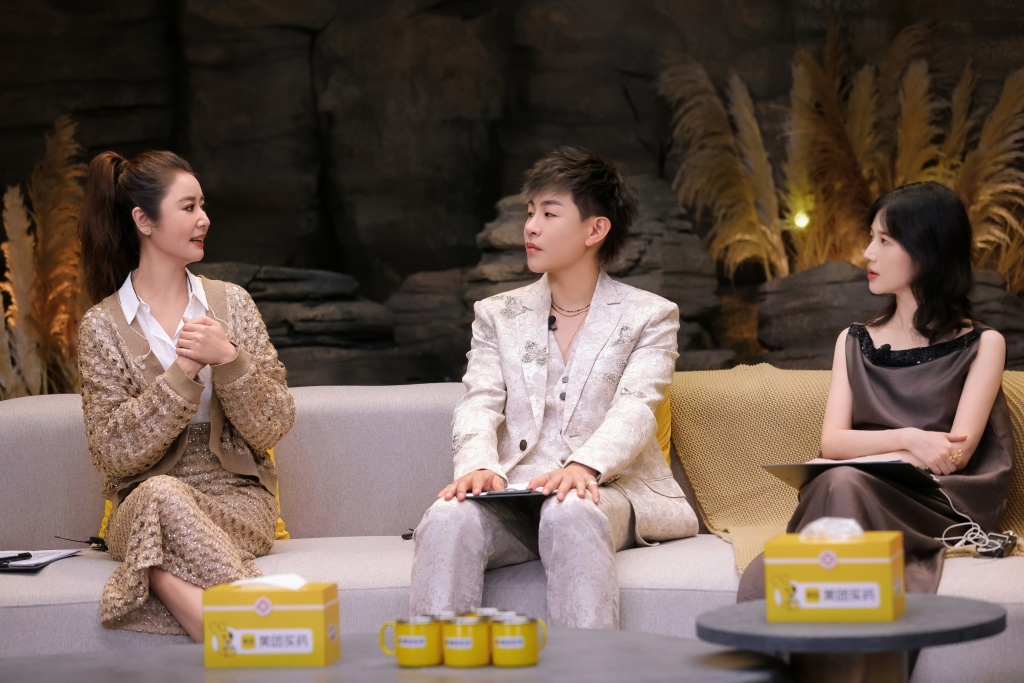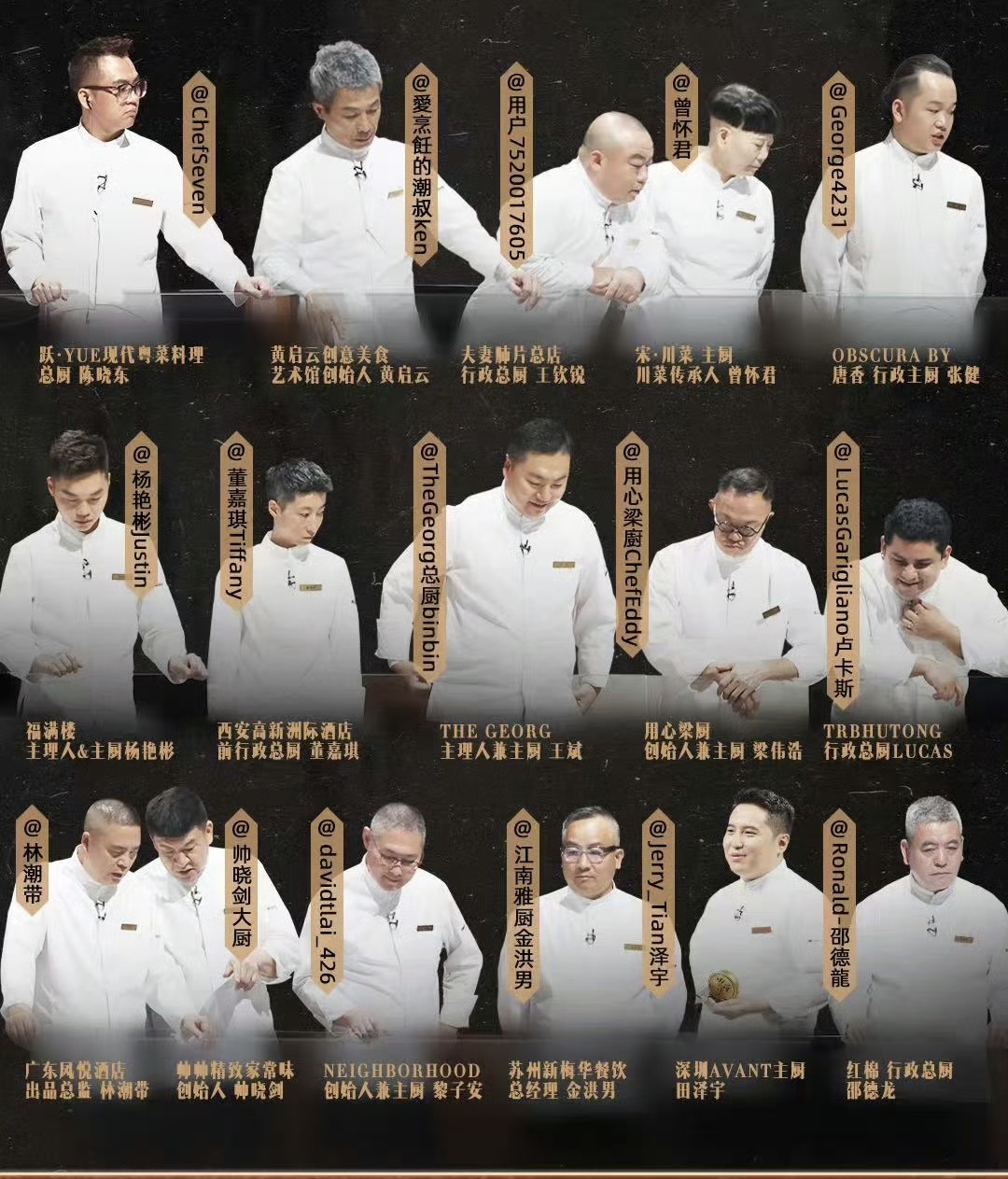
Since the 2022 season of "Comedy Roast Battle 5," the stand-up comedy programs have been quiet for nearly two years, but they are finally back, and this time with two versions. They are iQIYI's "Comedy King: Stand-Up Season" (hereafter referred to as "Stand-Up Season") and Tencent Video's "Stand-Up Comedy and Friends" (hereafter referred to as "Comedy Friends").
For many fans of stand-up comedy, regardless of how the shows actually perform, the main point is that stand-up comedy is back.

Posters for "Comedy King: Stand-Up Season" and "Stand-Up Comedy and Friends"
The theme of this season of "Comedy Friends" is "Life's Problems, and Let's Talk About Them in Stand-Up," succinctly expressing the significance of stand-up comedy for the audience. Life’s worries and pressures are unavoidable, and stand-up comedy presents these issues in a humorous way, allowing the audience to temporarily forget their troubles amidst laughter and achieving an emotional release. At the same time, stand-up comedy helps the audience examine their own worries from different perspectives—sometimes, looking at a problem from a different angle can turn a worry into something less burdensome.
Therefore, the audience needs stand-up comedy for instant joy and relaxation, as well as companionship to face life’s challenges with a more positive and optimistic attitude, using humor to release emotions, reduce stress, and enhance understanding.
The casts of the two shows can be seen as a split version of "Comedy Roast Battle."
"Comedy Friends" continues the DNA of "Comedy Roast Battle." A significant part of the behind-the-scenes team for "Comedy Friends" comes from "Comedy Roast Battle"; Zhang Shaogang, Da Zhangwei, Zhang Yuqi, and Lu Yu are also old friends of "Comedy Roast Battle"; some seasoned performers from "Comedy Roast Battle," like Hulan, Xu Zhisheng, He Guangzhi, Yan Yi and Yan Yue, Tong Monan, Cheng Lu, and Niaoniao, are still in the mix, although Tong Monan, Cheng Lu, and Niaoniao have completely shifted to scriptwriting roles; the overall recording atmosphere, tone, and style of titles are also reminiscent of "Comedy Roast Battle."
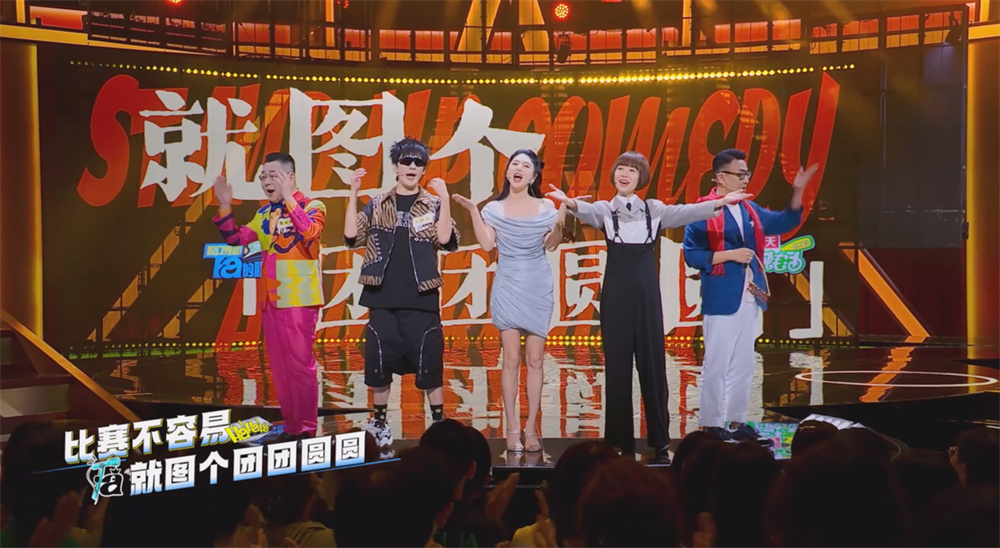
Members of the "Comedy Friends" Laugh Team
Although iQIYI's "Stand-Up Season" is led by Stephen Chow as the gathering figure, he has not actually participated in the program's filming and, in reality, his connection to stand-up is somewhat tenuous. "Stand-Up Season" mainly relies on the talented production team and seasoned performers who emerged from "Comedy Roast Battle," such as the "Comedy Old Friends" Wang Jianguo, Zhou Qimo, Pang Bo, and Yang Li (who share another title as the "Four Great Kings of Comedy," humorously dubbed as "kings"). Many contestants in "Stand-Up Season" have previously participated in "Comedy Roast Battle," including Xiao Lu, Hei Deng, and Tang Xiangyu.
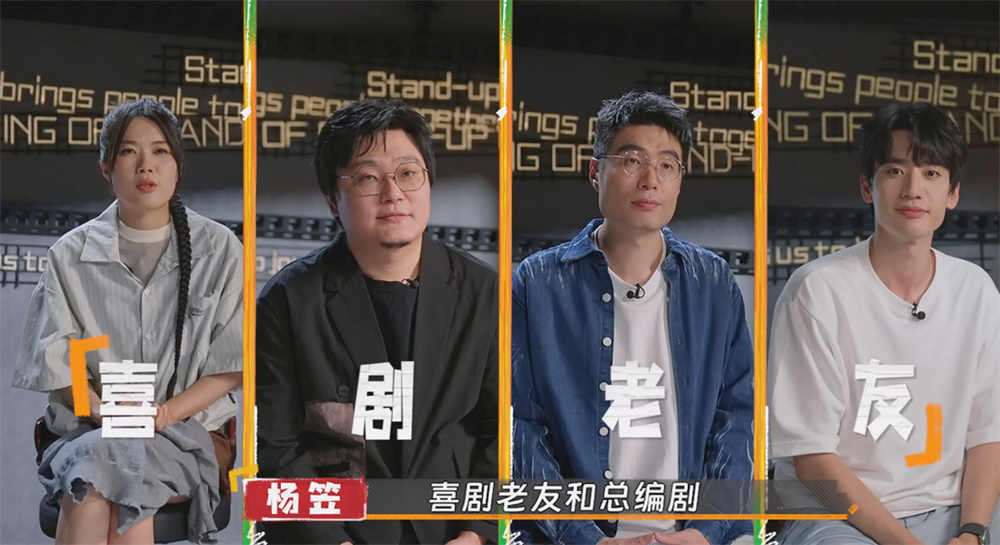
In another show, they won't face elimination anymore
The concurrent competition between the two shows is a good thing, though the "division" itself is somewhat regrettable. Getting back on track, comparisons are inevitable with shows airing simultaneously—who will you vote for?
From a competition format perspective, "Comedy Friends" has stirred up some controversy.
Participating stand-up comedians first need to select different “laughter circles” based on their self-positioning. These are divided into the “Big Laugh Circle” (哈哈哈大笑圈), “Good Laugh Circle” (哈哈好笑圈), and “Smile Circle” (哈微笑圈), with each circle reflecting different advancement difficulties and rates.
The Big Laugh Circle has an advancement rate of at least 50%, suitable for confident and strong contestants; seasoned performers like Hulan, Xu Zhisheng, and others typically choose this circle. The Good Laugh Circle has a 50% advancement rate, meant for those who feel their performance is middling, while the Smile Circle only has a 30% advancement rate and primarily hosts newcomers just starting out.
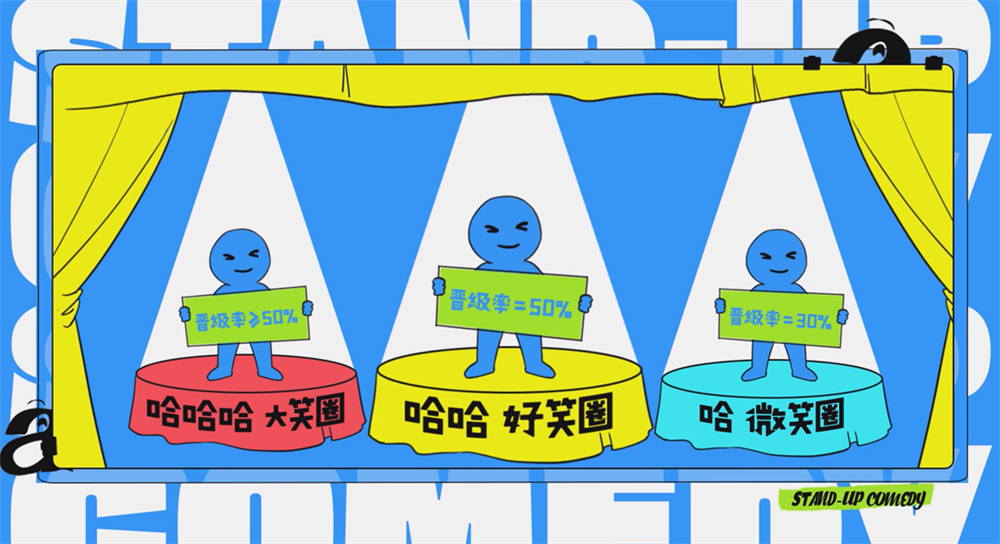
Different elimination rates across the three circles
The Big Laugh Circle and Good Laugh Circle each have 1V1 mic battles—if there's no challenge, contestants automatically advance; if PK (player killing) is lost, they're directly eliminated. If multiple contestants remain unchallenged, a battle royale mode is engaged for the last advancement spot.
This harsh competition format indeed heightens the intensity but results in two notable negative effects. First, the Big Laugh Circle may lead to "class stratification" among contestants—established performers are more likely to remain, while newcomers are more likely to be cut. If established performers perform at a high standard, the audience typically has no complaints. However, if an established performer underperforms, the audience won’t hesitate to voice their dissatisfaction—“How come nobody challenged them when their performance was mediocre?”
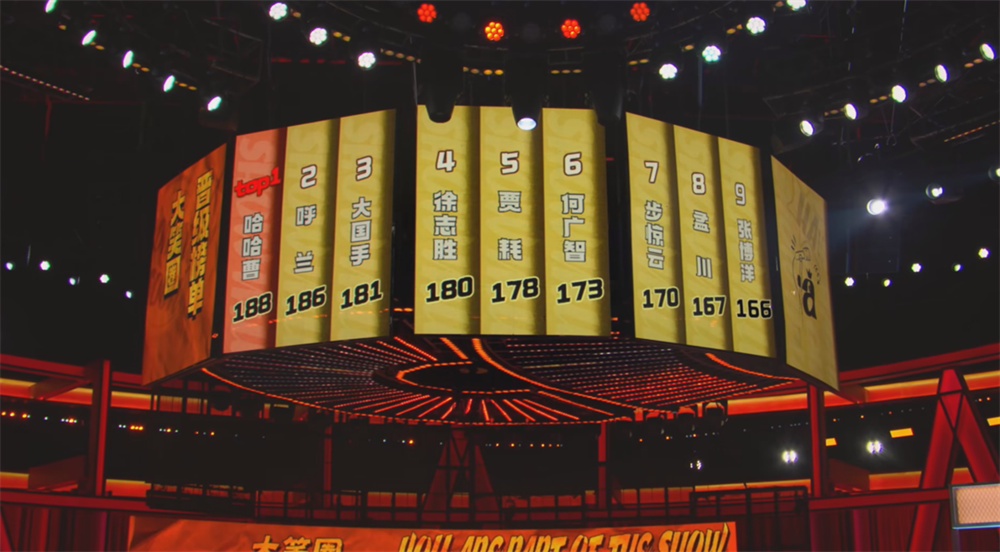
Some contestants were eliminated with 175 votes, while others with 166 votes faced no challenges
Moreover, the competition format is unfair to those who come up later in the round. Yan Yi and Yan Yue were directly eliminated.
The second issue with the 1V1 elimination format is that it easily creates situations where strong competitors are pitted against each other, leading to a strong contestant's elimination, while weaker competitors battle it out, resulting in one weak contestant advancing. As expected, the Good Laugh Circle featured many such tragic outcomes. For instance, the foreigner Harry performed exceptionally well, but his opponent was even stronger, leading to his elimination.
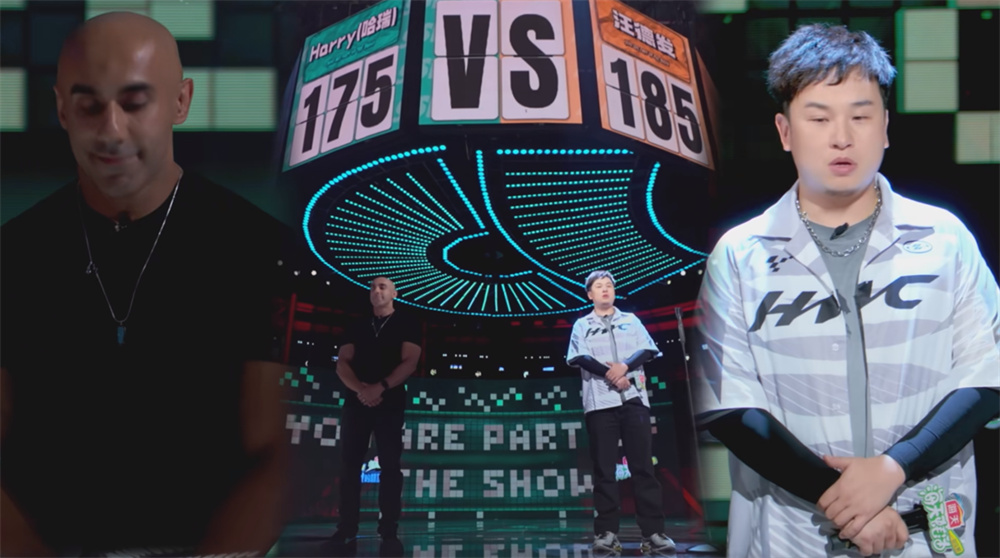
Strong contenders battling it out results in one strong player getting eliminated
While the opening format of "Stand-Up Season" may seem a bit dull, its competition structure is actually more favorable to newcomers.
The first round adopts a camp battle format, where contestants team up with their chosen comedy old friends to form four camps. Contestants can enter into 1V1V1V1 showdowns between camps, with the top two advancing and the bottom two entering the danger zone; contestants can also directly challenge the “Four Kings of Comedy,” securing an immediate advancement for a successful challenge, while failure also places them in the danger zone.
Compared to the 1V1 format, the 1V1V1V1 structure for two advancement spots helps avoid the harsh situation of strong vs. strong and unwarranted eliminations. Instead, it can lead to strong participants advancing together while leaving weak participants behind. Additionally, those at risk of elimination still have a chance to make a comeback. This format prevents the "friendly fire" situation where strong contestants might be eliminated, benefiting newcomers instead.
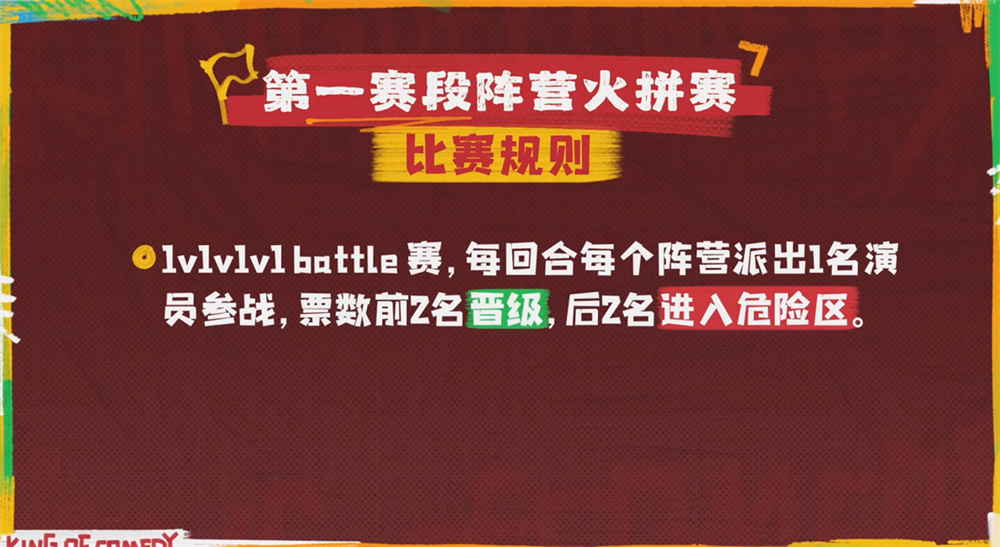
The 1V1V1V1 format is a more reasonable method of competition
Ultimately, a stand-up comedy show must still rely on the quality of its performances.
Both shows have their share of atmosphere-driven performers; Fu Hang from "Stand-Up Season" and Haha Cao from "Comedy Friends" electrified the audience, earning high scores, yet many viewers expressed lack of understanding on Weibo.
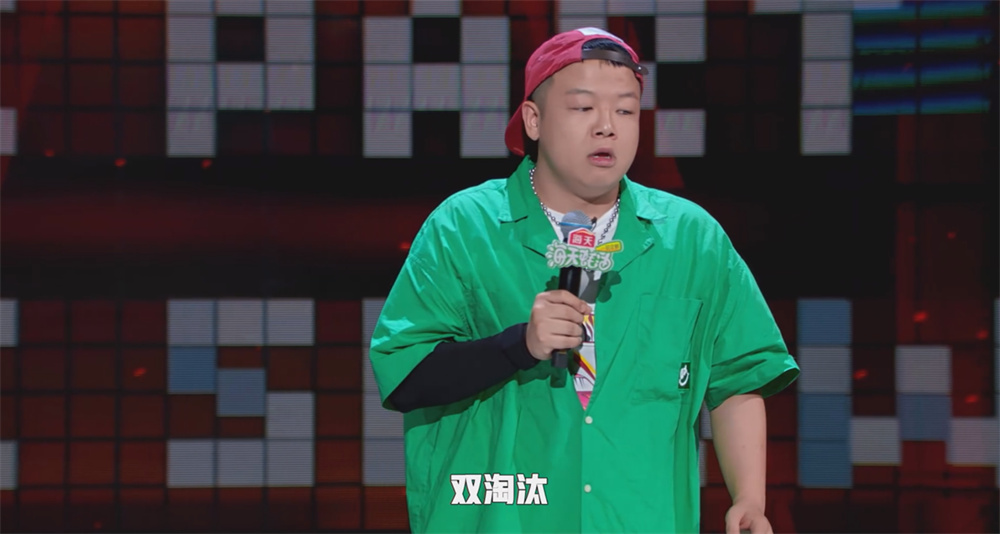
Haha Cao
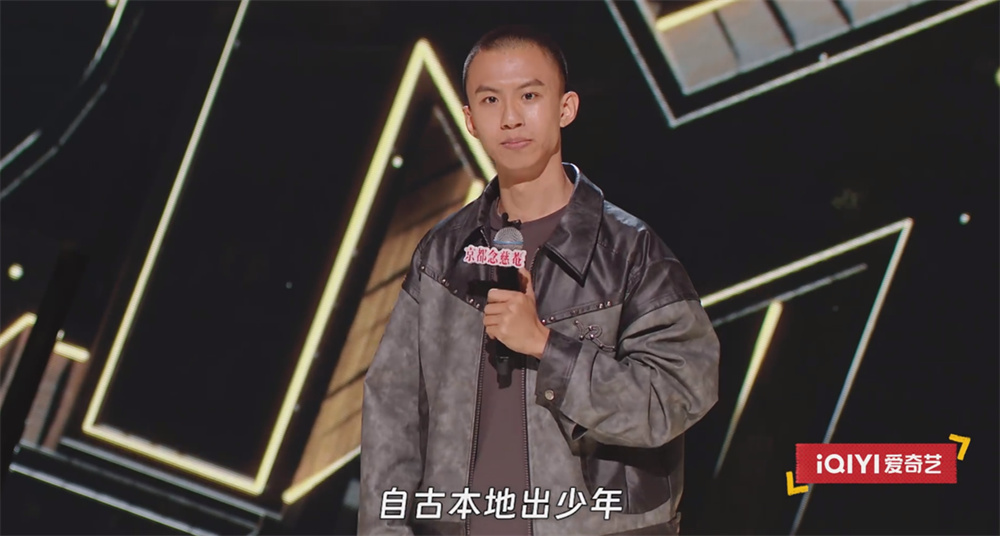
Fu Hang
From a purely textual standpoint, there doesn’t seem to be anything particularly unique, but some stand-up performances are so dependent on live factors, including improvisation, audience interaction, and the unique charm of a live atmosphere. Watching live, the laughter and reactions of the audience can be infectious, creating a collective experience that enhances enjoyment, which is difficult to replicate on-screen. Thus, whether one enjoys such live performances can be a matter of personal preference.
For the vast majority of stand-up performances, however, the text remains the most crucial element.
What does a good stand-up comedy script look like? It can largely return to the theme statement, "Life's Problems, Let's Talk About Them in Stand-Up," or, as Xu Zheng puts it, it is "realist."
Good stand-up comedy usually revolves around common life troubles, such as homesickness, work pressure, interpersonal relationships, and family chores. Stand-up comedians often start from their own experiences or observed phenomena, telling authentic stories and feelings that resonate closely with everyday life.
Some stand-up routines extend beyond personal experiences and can observe and comment on social phenomena, skillfully presenting perspectives on current situations through humor that prompts the audience to reflect on certain social issues.
Although discussions are based on life's troubles, stand-up comedy expresses them through humor which not only allows the audience to find resonance amidst laughter but also cleverly provides new perspectives on issues, giving solace and release in a light-hearted atmosphere.
When measuring the quality of text by this standard, the overall performances of the renowned, often sold-out, seasoned performers in both "Stand-Up Season" and "Comedy Friends" tend to fall below expectations.
In the first episode of "Comedy Friends" (Part 1), it primarily showcased seasoned performers from the Big Laugh Circle. They hold sentimental weight, generate buzz, and display solid skills—a reliable enough group. The slight disappointment is that their performances weren't all that remarkable.
One problem is the use of “inside jokes” among the established competitors—this flaw is also present among the seasoned performers on "Stand-Up Season." Inside jokes, based on shared experiences or popular phrases within a specific circle, require relatively simple creativity and sometimes do not require true writing; mentioning a specific keyword or event can trigger laughter from that audience segment. This kind of creation feels lazy.
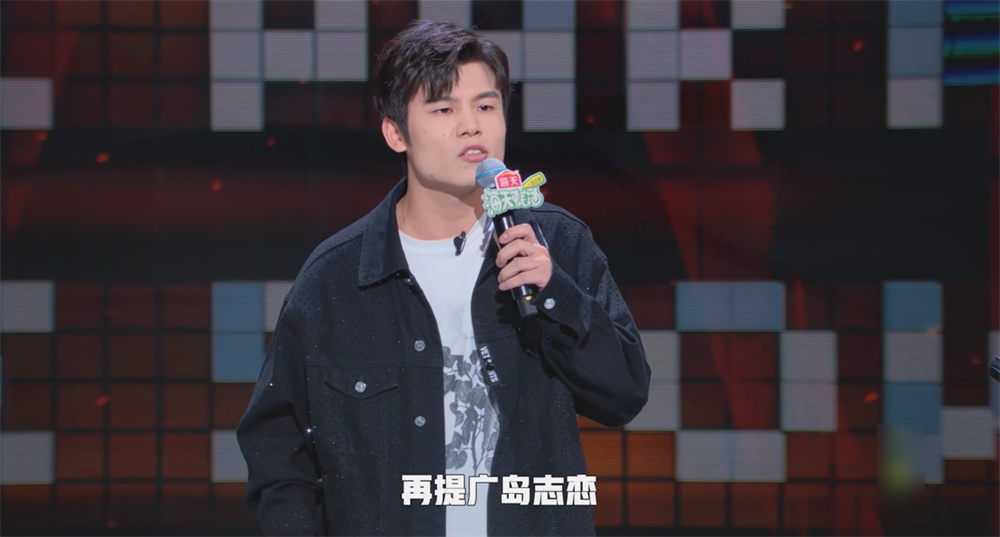
He Guangzhi
Thus, we see seasoned comedians on "Comedy Friends" using the term “anger” in reference to an inside joke with Xu Zhisheng.
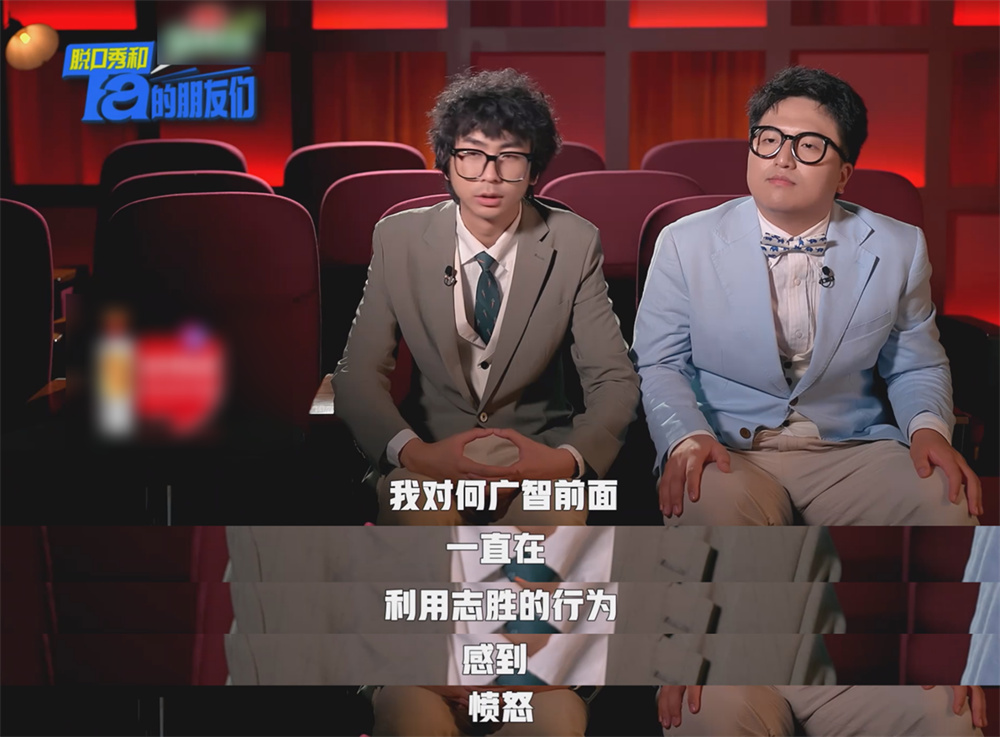
Moreover, a more significant issue is that the “life troubles” of established comedians are often no longer relatable troubles for ordinary individuals. Their narratives might lack observations of daily life.
Even though they had no work in stand-up last year, Xu Zhisheng, Pang Bo, and others have been active in various varieties of shows. After gaining fame, they have more opportunities and resources to engage in various activities and social circles, possibly making it more challenging to capture the life details and emotional experiences of the average person. As a result, their jokes might feel too lofty, and not as funny.
Established performers also face the issue of path dependency, relying on past successes and familiar patterns instead of exploring new perspectives and themes. In "Comedy Friends," at least three of the seasoned performers touched on fitness (could this be one of the few channels through which they engage with everyday life?). Breakthrough talents like Jia Hao (though an established performer, not yet a household name) are still relatively rare.

Jia Hao is making progress
The established performers in both shows commonly express sentiments regarding the state of comedic programming over the past year. Yes, it was tough for everyone last year; established performers feel the struggle, but how much tougher for those who are still fighting for recognition? The well-known performers can still thrive through various side gigs, but those who are still on the lower rungs of stand-up face real threats, as reflected in Jiang Zhihao's lamentation about "having no work."
